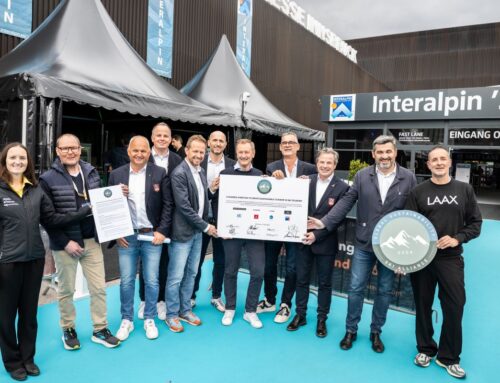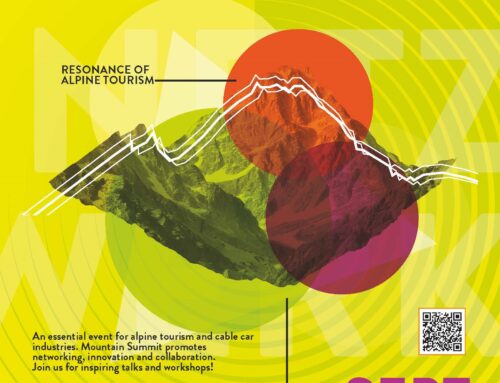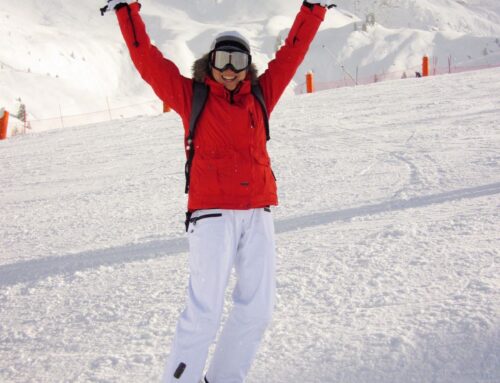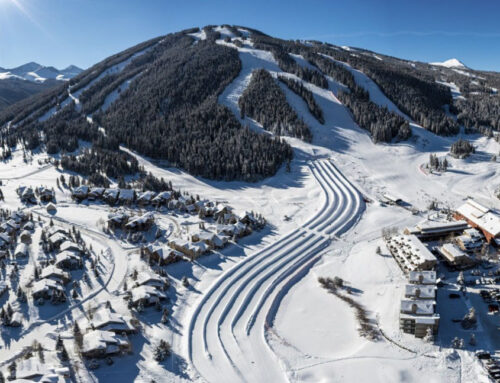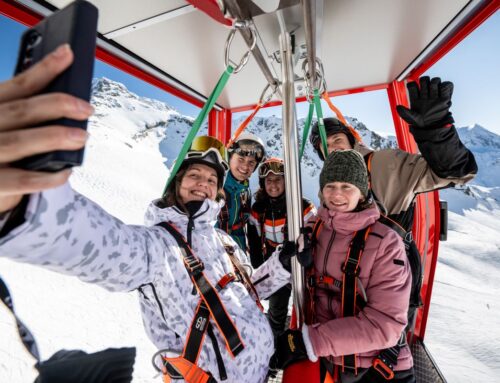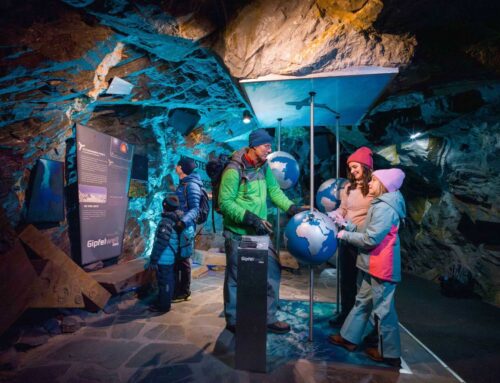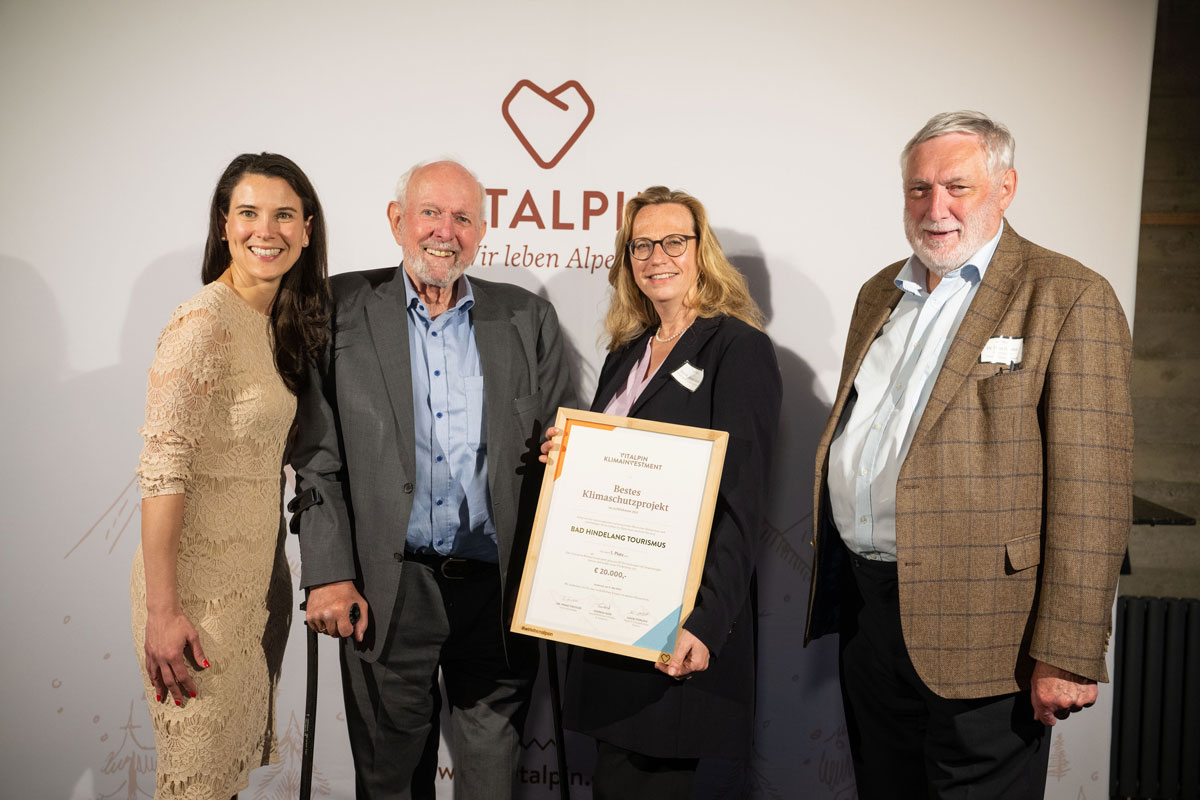
Management & Tourism
Best climate protection in the Alpine region
This year, for the first time, Vitalpin awarded a prize for sustainable projects in the field of environmental and climate protection as well as for sustainable management in the Alpine region.
Through the Vitalpin ClimateInvestment initiative, which is supported by the climate protection expert ClimatePartner, funds amounting to around 65,000 euros were raised.
The sum was raised through voluntary premium payments by companies and will now benefit the implementation of sustainable projects in the Alpine region, as Theresa Haid, Managing Director of Vitalpin, reports:
“The protection of the Alpine region will become increasingly important in the future. That’s why we were keen to use the initiative to promote those who have already recognised this and are particularly committed to sustainability and climate protection!”
Jakob Sterlich, authorised signatory of ClimatePartner Austria, about the initiative:
“I am pleased that 40 applications have been received from Germany, Austria, Switzerland and South Tyrol. Numerous companies, associations and start-ups have seized the opportunity to give their projects even more attention.”
The Top Placers
- Hindelang Tourism (Allgäu Destination)
- Niedersteinhof (South Tyrolean farm)
- re.paro (association for repair culture)
- Carezza Dolomites (ski resort)
The happy nominees
gathered at the Lansersee.
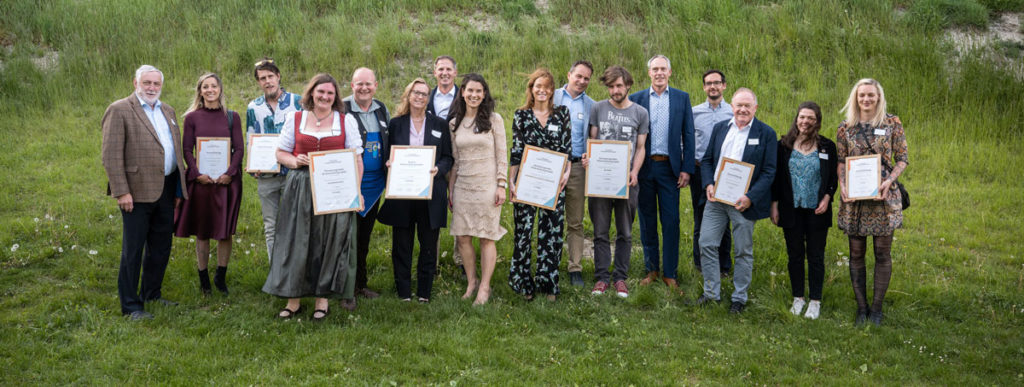
Expert jury selects winners according to strict criteria
Sustainable mobility, energy efficiency, investment and use of renewable energy, carbon sequestration measures, biodiversity measures and circular economy initiatives – these were the criteria used to evaluate the projects and determine the winning projects.
A renowned jury selected the applications. Jury chairman and former EU Commissioner Franz Fischler on the winners:
“It was not an easy decision given the large number of exciting projects, but I am sure that we made the right choice with the four winners. They serve as a true role model for all companies and associations that want to move forward in terms of environmental and climate protection.”
The other members of the jury are Alice Schmidt (POW Science Alliance), Karin Huber-Heim (Circular Economy Forum), Ulrike Pröbstl-Haider (BOKU Vienna), Christian Baumgartner (CIPRA International), Hans-Jürgen Salmhofer (Federal Ministry for Climate Protection) and the former German professional ski racer Felix Neureuther.
Although Neureuther was unable to attend the award ceremony in person for scheduling reasons, he did not miss the opportunity to deliver a video message to the project submitters:
“It is impressive to see this wealth of innovative projects. You are all doing an outstanding job, it is unbelievable what thoughts you have and what you are doing for sustainability in the Alps.
A high-level discussion rounded off the event:
Franz Fischler, Manfred Pinzger, Marcus Caduff, Ulrich von Weizsäcker, Mario Gerber, Isabella Krassnitzer.
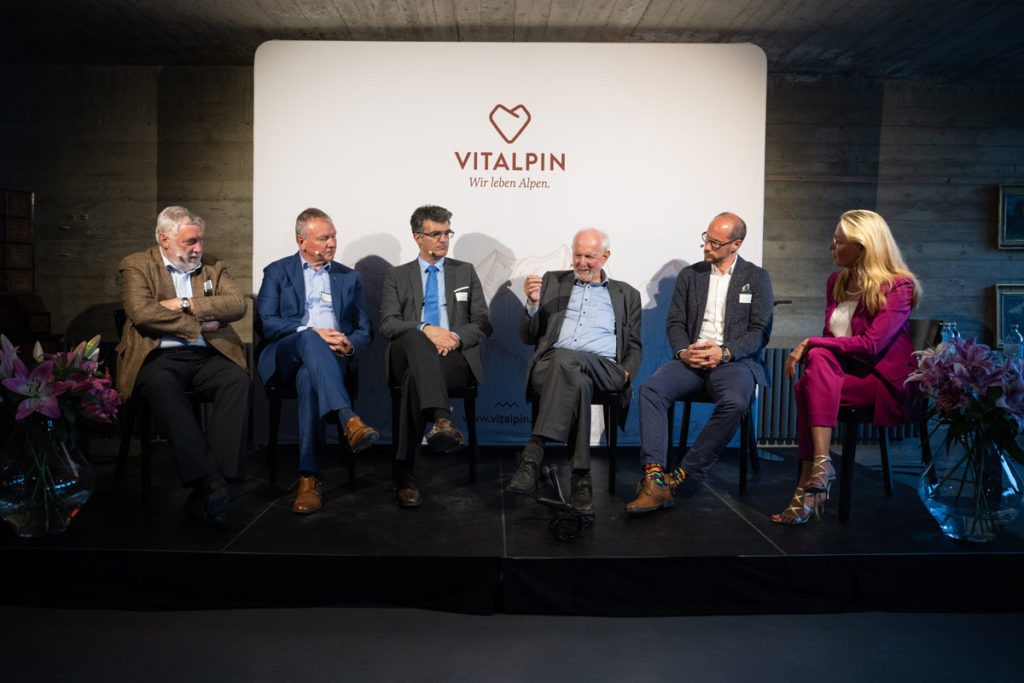
Four big winning projects
The Allgäu destination Bad Hindelang Tourismus, the South Tyrolean farm Niedersteinhof, the Innsbruck association re.paro – Verein für Reparaturkultur and the South Tyrolean ski resort Konsortium Carezza Dolomites prevailed with their concepts against the competitors.
Bad Hindelang Tourismus received prize money of 20,000 euros for the “EMMI-MOBIL” project. This electrically operated call-bus system takes sustainable local mobility in the region to a whole new level.
“I am of course very pleased and motivated that our project is among the four winners. According to the World Health Organisation (WHO), Bad Hindelang is one of the places with the best air in the world. To keep it that way, we have to face up to the mobility turnaround and seriously and credibly engage and position ourselves. With EMMI-MOBIL, we are driving forward the municipal climate and mobility turnaround on the basis of our living space concept and are leading the way as a sustainable tourist destination with an exemplary function,” says Bad Hindelang’s mayor Sabine Rödel.
In the project “Living, living, enjoying – energy self-sufficient and sustainable living space” of the Niedersteinhof from South Tyrol, sustainable management is applied at all levels:
Examples: the energy supply by means of a heat pump or wind turbine, the purely regional procurement of materials and handicrafts, the utilisation of the farm’s own hay and transport by e-cars or the protection of biodiversity.
Vitalpin KlimaInvestment gave 15,000 euros for these projects.
re.paro was pleased to receive 4,500 euros. With the “ReparaturKulturCafé” in Innsbruck, the Tyrolean association has created a place where things can be repaired and do not have to be thrown away – circular economy par excellence.
The Carezza Dolomites consortium convinced the jury with its concept “Living sustainability and putting it into practice” and also received 4,500 euros.
The South Tyroleans involve the entire region and all stakeholders in the sustainability process “System Carezza” and invest in sustainable mobility, energy efficiency and circular economy.
The seven other nominees:
- Der Tourismusverband Wilder Kaiser aus Tirol mit seiner Mobilitäts-App Naturtrip Tirol – Urlaub ohne Auto endlich einfach
- Das vegane Restaurant „Guat, zEssen“ aus Tirol mit eigenem Gemüseanbau aus Permakultur
- Der Reiseveranstalter ASI Reisen aus Tirol mit seinem CSR Dashboard
- Die Schmittenhöhebahn AG aus Salzburg mit ihrem Bewirtschaftungskonzept zur Steigerung der ökologischen Vielfalt
- Seiser Alm Marketing aus Südtirol mit dem Konzept für Investitionen in Nachhaltigkeitsprojekte auf dem Weg zum klimaneutralen Skigebiet
- Die FONTIS luxury spa lodge aus Südtirol mit ihrem Urlaubskonzept und der einzigartigen Kombination aus nachhaltiger Bauweise, Green Spa, Eco Farming und Outdoor Active Erlebnissen.
- Das Restaurant Zeress aus Südtirol mit seiner Orientierung an regionalen und nachhaltigen Prinzipien
Sie bekamen jeweils Preise in Höhe von 3.000, – Euro.
